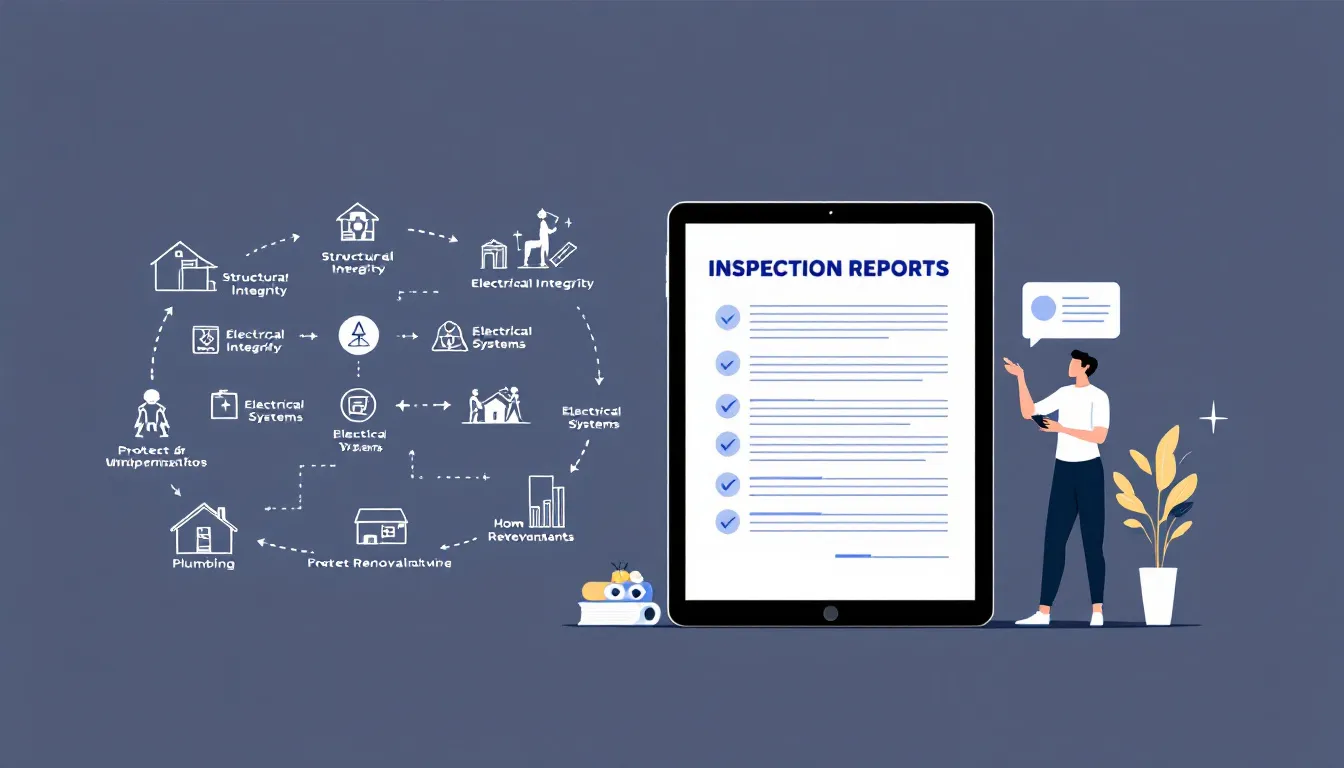Debbie ran her bath in the new bathroom. She was going to enjoy an hour away from the kids and chaos of homework and lists of to-dos. Kevin, her husband burst into the room, and slammed the water tap off, making Debbie scream and jump!
“Water is pouring out of the celing onto the tv downstairs!”. A pipe had burst in their brand new bathroom. It wasn’t until the insurance inspector came out that the depth of the disaster was discovered.
The disaster wasn’t the pipe, or the damage, but the inspector’s words. “We estimate the damage to be $26,000 and this won’t be covered”. Unfortunately, we also are legally required to let the county know about the damage as well.
Kevin’s brother, a handyman had done the remodel for half of what anyone else quoted. However, he saved money by using cheaper parts and not pulling any permits or getting any inspections. This not only made the job illegal, but voided the insurance claim and caused the policy to cancel.
Insurance adjusters say they see this all the time and it’s always a disaster for the homeowner.
Permits and inspections are vital for any remodel. They ensure you comply with building codes, protect your investment, and guarantee safety. Without them, you could face legal issues and costly repairs. This article explains the importance of permits and inspections for your remodel. Additionally, obtaining proper permits and insurance is crucial to avoid denied claims or legal issues.
Introduction to Remodeling Permitting
Remodeling a home can be a complex and overwhelming process, but with the right guidance, it can also be a rewarding experience. A successful home renovation project requires careful planning, execution, and strict compliance with local building codes and regulations. Hiring a licensed general contractor is essential for ensuring that the project is completed safely and to the highest quality standards.
Before embarking on a major remodel, homeowners should thoroughly research and understand the permitting process. Obtaining the necessary permits is a crucial step that should not be overlooked. A well-planned home renovation can significantly increase the value of a property, improve its functionality, and enhance the overall living experience.
It’s crucial for homeowners to decide on a clear scope and set realistic expectations for their project to avoid costly repairs and potential hazards down the line. Regular weekly meetings with the contractor can help ensure that the project is progressing as planned and that any issues are addressed promptly. This proactive approach fosters better communication and keeps the project on track.
When hiring a contractor and selecting materials for the home renovation project, homeowners should prioritize quality standards and safety. Special consideration and permits may be required for old houses, and working with a contractor who has experience with such renovations is beneficial.
By understanding the remodeling process and working with a reputable contractor, homeowners can achieve their desired outcome and enjoy their newly renovated home. This approach not only ensures compliance with regulations but also protects the homeowner’s investment and enhances the property’s value.
Key Takeaways
- Adhering to local building codes through permits and inspections ensures safety, structural integrity, and compliance, preventing legal issues and fines.
- Obtaining permits and conducting regular inspections protects the homeowner’s investment, enhances property value, and maintains insurance compliance.
- Hiring a licensed general contractor facilitates the permitting process, reduces liability risks, and ensures high-quality workmanship throughout the renovation.
Ensuring Compliance with Local Building Codes

Starting a home renovation requires adhering to local building codes. Building permits confirm that your modifications meet safety and structural standards. Without them, you risk legal issues, fines, or renovation complications. Frequent check-ins with your contractors help keep the project aligned with local permits and regulations.
Building codes ensure your home’s structural integrity. A beautifully remodeled bathroom or kitchen could be structurally unsound without meeting code requirements. Adhering to necessary permits avoids such scenarios. Exemption covenants can sometimes be issued for code non-compliant areas, making them recognized as legal living spaces.
Inspections at each major remodel phase confirm compliance with building codes, catching potential issues early. Collaborating with a licensed general contractor helps efficiently navigate these requirements to build smoother project progression.
Remember, compliance is not just a formality; it’s a safeguard for your home’s safety and longevity.
Protecting Your Investment

Your home is likely one of your most significant investments, and protecting it is paramount. Obtaining permits and regular inspections protects your investment and can increase property value when selling. Inspections confirm that renovation work meets quality standards, avoiding future fines or repair costs.
It’s crucial to know whether a contractor employs their own staff or relies on subcontractors, as this can affect the quality of work and the insurance implications concerning employees who may get injured on the job.
Skipping permits and inspections risks reducing your property’s value, making it less appealing to buyers. Lack of proper documentation can lead to insurance claim issues, as insurers may not cover unpermitted work or damages. Investing in permits and inspections protects your investment and provides peace of mind knowing that every aspect of your renovation is up to code and professionally validated.
Inspections confirm that craftsmanship meets high standards, enhancing your property’s value. High-quality workmanship is important for both aesthetics and the longevity and functionality of your renovated site materials subject proof space. Conduct a search to ensure you are aware of the best practices within the scope.
Obtaining permits and scheduling inspections ensures homeowners protect their investment and that business jobs renovations endure.
Avoiding Costly Repairs
One of the most compelling reasons to adhere to permitting processes and regular inspections is the avoidance of costly repairs. Permits and inspections prevent subpar workmanship or structural issues, avoiding costly future repairs. Regular inspections detect potential issues early, allowing timely corrections before they become major problems.
Additionally, it is important to understand and extend warranties provided by contractors for their work. Request documentation for any material or installation warranties that may accompany the service to ensure you are fully covered.
Adhering to permitting processes offers long-term financial benefits, ensuring work is done correctly from the start and avoiding hefty future repair bills. Inspections confirm that safety standards are met, reducing the risk of injuries or damage from faulty construction practices. This protects homeowners and adds value to the property by maintaining high work standards.
Investing in permits and inspections is cost-effective, helping homeowners pay for the idea intended to stay within budget by preventing unexpected expenses from poor workmanship or non-compliance.
It acts as a safety net, catching potential problems early and saving you from the stress of costly repairs later. Whether renovating floors, remodeling the kitchen, or undertaking a major renovation, adhering to these processes is crucial for maintaining your home’s integrity and safety.
Enhancing Safety
Safety is a paramount concern in any home renovation project. Inspections at various remodel stages confirm that safety codes and regulations are met, ensuring your renovated spaces are safe for you, your family, and visitors. Permits ensure compliance with safety standards and public regulations, protecting everyone involved in the renovation process.
Structural inspections are crucial as they can detect underlying issues that might not be immediately visible but could pose significant safety hazards. Engaging a structural engineer ensures that your renovation designs are feasible and can be safely executed.
Proper permits and regular inspections reduce potential hazards and enhance safety, ensuring your house remains a safe and secure place to live.
Facilitating Smooth Home Sales

Selling a home can be a complex process, especially if renovations were done without the necessary permits. Permits and inspection reports show regulatory compliance, making it easier to sell your home. Potential buyers are reassured that renovations were done legally and safely, significantly enhancing your property’s appeal.
Conversely, selling a home with unpermitted modifications can lead to costly complications. Buyers may require the removal of unauthorized work, causing additional expenses and delays. Inspections highlight potential deal-breakers affecting property value and buyer interest, ensuring a smoother, more profitable home sale.
Having all permits in order facilitates a seamless transition when you obtain permits for selling property.
Legal Requirements and Liability
Navigating the legal landscape of home renovations avoids potential liabilities. Homeowners must comply with local building codes and regulations to prevent legal issues. Knowing when permits are necessary prevents hefty fines and penalties for non-compliance. Complex renovations are more likely to require permits, making early identification crucial in the planning process.
Legal compliance also maintains insurance coverage. Insurers may not cover work or damages from unpermitted renovations, leaving homeowners financially vulnerable. Workers’ compensation insurance protects homeowners from liability insurance for injuries or accidents on their property. Failing to schedule required inspections can result in non-compliance with regulations, leading to potential lawsuits and legal issues, including necessary paperwork.
Hiring a licensed general contractor significantly reduces liability risk. They are well-versed in local building codes and regulations, ensuring necessary permits are obtained and the project complies with the law. This protects homeowners from potential lawsuits and ensures the renovation proceeds smoothly and safely.
Ensuring Quality Standards
High-quality workmanship is the cornerstone of a successful home renovation. Permits and inspections ensure professional standards are met, reducing the likelihood of extensive future repairs. Inspections confirm that work meets required standards, providing peace of mind that your remodel is done correctly and safely.
Quality standards encompass aesthetics, safety, and longevity. Adhering to permitting processes and regular inspections ensures renovations meet high-quality standards and stand the test of time. This enhances property value and ensures renovated spaces remain safe and functional for years to come.
Benefits of Hiring a Licensed General Contractor
Hiring a licensed general contractor offers numerous benefits. A skilled contractor understands the permitting process and ensures compliance with all regulations, making the project more efficient. Licensed contractors often have relationships with local building inspection offices, facilitating smoother permit processes and quicker approvals.
A licensed contractor protects homeowners from potential liabilities and ensures compliance with insurance requirements. When hiring a contractor, a qualified person verifying their job qualifications and reliability ensures a successful renovation project.
Hiring a licensed general contractor brings expertise in navigating the permitting process and maintaining project legality.
Understanding Building Permits
Building permits are official authorizations granted by local authorities that allow homeowners to make specific changes to their homes. The permitting process involves submitting detailed plans and specifications to the local office, which reviews them to ensure compliance with local building codes and regulations. Homeowners must obtain the necessary permits before starting a major remodel, as failure to do so can result in costly fines and penalties.
A contractor holds the responsibility of obtaining the necessary permits and ensuring that the project complies with local building codes. Inspection reports are crucial in ensuring that the project is completed to the required standards, and homeowners should request these reports from their contractor to verify compliance.
Liability insurance is essential for protecting homeowners and workers in case of accidents or injuries during the renovation process. Homeowners should verify that their contractor has the necessary insurance coverage and licenses before hiring them. This due diligence helps ensure that the project is completed safely and legally.
The cost of obtaining permits and inspection reports should be factored into the overall budget of the home renovation project. Homeowners should be aware of the potential risks and hazards associated with remodeling, such as injury from falling debris or exposure to hazardous materials. By understanding the importance of building permits and working with a reputable contractor, homeowners can ensure a safe and successful home renovation project.
Understanding and adhering to the permitting process not only ensures compliance with local regulations but also enhances the quality and safety of the renovation. This proactive approach protects the homeowner’s investment and contributes to a smoother, more efficient remodeling experience.
The Permitting Process Explained

Understanding the permitting process is crucial for successful renovations. Homeowners should determine why a permit was not initially obtained to guide subsequent steps. Creating design plans documents that the space meets building code requirements, regardless of needed changes. A municipal inspector’s courtesy inspection provides insights into necessary changes for code compliance.
The Field Issuance Remodel program streamlines the permitting process with consistent feedback from a designated city inspector, easing the approval process. A detailed inspection report streamlines the approval process with local authorities, ensuring all work meets required standards. Some municipalities offer grandfather code allowances, permitting existing work that predates current building codes to remain unchanged.
Understanding and following the permitting process ensures renovation projects comply with local regulations, reducing legal risks and enhancing work quality and safety.
Common Pitfalls and Red Flags
Skipping permits and inspections can lead to serious legal issues and fines. This can result in subpar workmanship, structural issues, and significant financial burdens later. Recognize the importance of permits and inspections for maintaining the integrity and safety of your renovation project.
When hiring contractors and subcontractors, be aware of red flags like reluctance to share background information or pressure to secure the project, which should raise concerns. By being vigilant and completing all necessary permits and inspections, homeowners can avoid hazards and ensure a successful renovation.
Environmental Considerations
Adhering to environmental regulations during renovations protects the environment and promotes sustainability. Permits and inspections ensure compliance with environmental standards, ensuring the renovation doesn’t negatively impact the community or environment.
Environmental considerations include making conscious material and practice choices that benefit both the home and the larger community. Prioritizing environmental considerations allows homeowners to contribute to a healthier, more sustainable future.
Weekly Meetings with Contractors

Regular meetings with your contractor keep you updated on renovation progress and ensure ongoing permit compliance. These meetings clarify expectations and align project goals, fostering better communication between homeowners and contractors.
Holding consistent meetings provides an opportunity to discuss any challenges or changes that may arise during the renovation, enhancing project efficiency and ensuring that all work adheres to the required standards in the long run. This proactive approach helps maintain the integrity and quality of the renovation project.
How to Verify Contractor Credentials
Verifying a contractor’s credentials is essential to ensure they are qualified to perform the work you need. Researching the contractor’s background and work history provides insights into their reliability and performance on past projects. A contractor should have a minimum of five years of experience in the specific type of work required for the project.
Ensure that the contractor holds the necessary licenses and has a good track record with previous projects before hiring them. This verification process helps homeowners make informed decisions by asking the right questions, ensuring that they hire a competent and trustworthy contractor for their renovation projects.
Summary
In conclusion, obtaining permits and scheduling regular inspections are essential steps in any home renovation project. These processes ensure compliance with local building codes, protect your investment, enhance safety, and facilitate smooth home sales. By hiring a licensed general contractor and adhering to permitting processes, homeowners can ensure high-quality workmanship and avoid potential legal issues. Prioritizing permits and inspections not only safeguards your home but also provides peace of mind, knowing that your renovation project is done correctly and safely.

Frequently Asked Questions
Why are building permits necessary for a home renovation project?
Building permits are essential for home renovation projects as they ensure compliance with local building codes and safety standards, safeguarding both legal interests and structural integrity. Obtaining the necessary permits ultimately contributes to a safer living environment.
How do permits and inspections protect my investment in my home?
Permits and inspections protect your investment by enhancing property value, avoiding potential fines or costly repairs, and ensuring that renovations meet quality standards. This proactive approach safeguards your home’s integrity and financial well-being.
What are the risks of not obtaining the necessary permits?
Not obtaining the necessary permits can result in legal complications, including substantial fines and complications during renovations. This oversight may also lead to future repair costs due to inadequate workmanship.
How can I verify the credentials of a contractor?
To verify a contractor’s credentials, research their background, confirm at least five years of relevant experience, ensure they possess the necessary licenses, and check their track record with previous projects. This due diligence will help ensure you select a qualified professional.
What should I expect during the permitting process?
During the permitting process, you can expect to create detailed design plans that comply with building code requirements, schedule a municipal inspector for a courtesy inspection, and possibly use programs to expedite approvals. This organized approach will facilitate a smoother path to obtaining the necessary permits.
